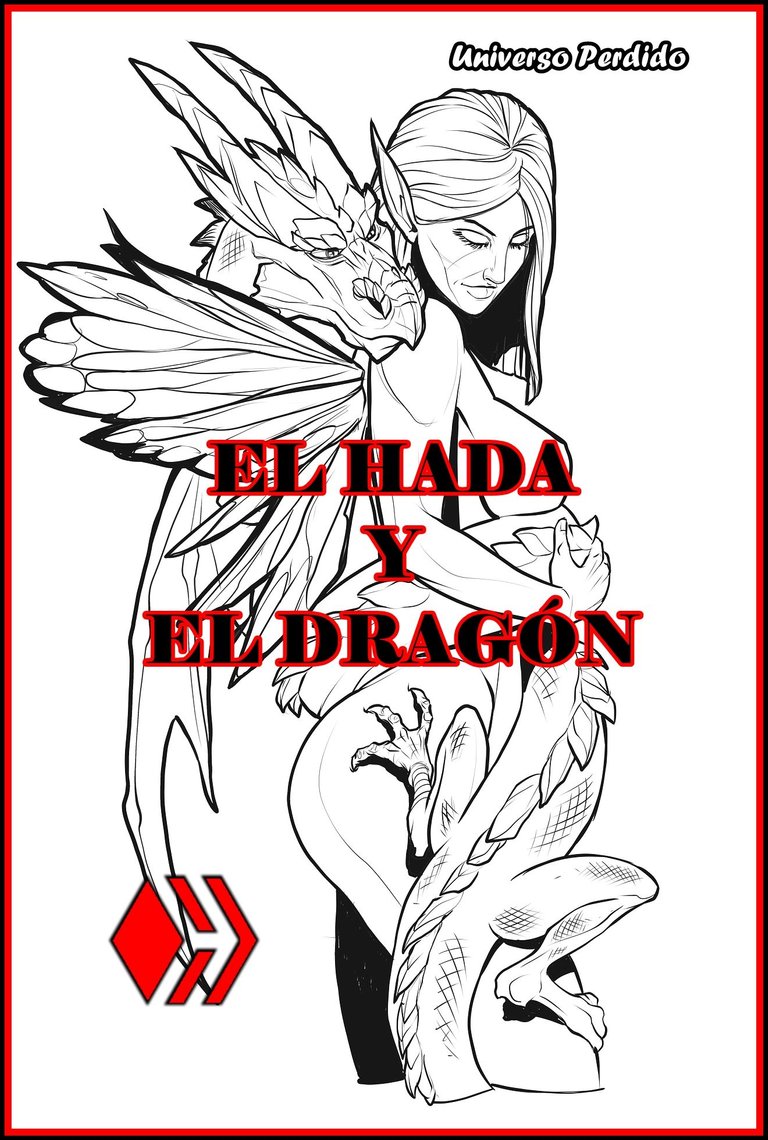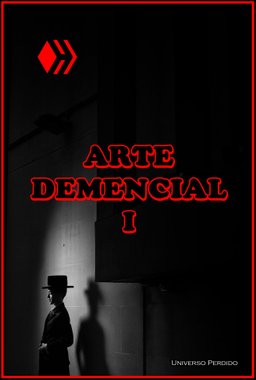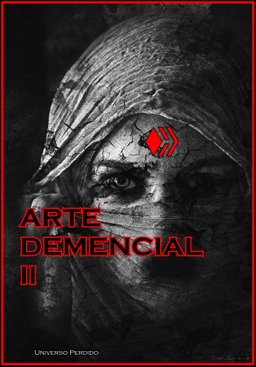
Image by Justin Martin from Pixabay
«Si el conocimiento crea problemas, no es a través de la ignorancia que podamos resolverlos».
«If knowledge creates problems, it is not through ignorance that we can solve them».
— Isaac Asimov

E S P A Ñ O L
𝔼𝕃 ℍ𝔸𝔻𝔸 𝕐 𝔼𝕃 𝔻ℝ𝔸𝔾Óℕ
Radabá era la deidad del viento, tomaba muchas formas y era imperceptible a los ojos de los humanos. Muchas veces se le veía con forma de dragón, otras veces con forma de serpiente; levitando por los cielos, acariciando a las nubes y jugando con el sonido. Un día, su hermano: Rashibadá; deidad de los alaridos, retó a su hermano a desposar a un hada filomena. Estaba prohibido para los dioses inmiscuirse en la vida de los mortales, a menos que estos tuviesen un origen divino.
Sin ánimos de parecer ante su hermano un cobarde, Radabá aceptó el reto, y descendió de los cielos con toda la fuerza que le otorgó el viento. Bajó hasta los bosques donde las hadas filomenas cantan en alboradas, y vio a muchas de ellas; saltando y bailando, agitando sus alas como colibríes encantados.
Radabá observó a cada una de ellas, a algunas las conocía por su aptitud y personalidad. Estaba entre las más hermosas Saisha; la de cabellos verdes y ondulados, y sonrisa cristalina tan diáfana como la del agua. Pero a Radabá no le gustaba por ser fría y narcisista, pues solo se amaba así misma a través de los espejos de las gotas.
Otra de las hadas más bella era Noemí; la de brazos y piernas largas, no solo su rostro era hermoso, sino su gracia y la forma en como trataba a sus otras compañeras. Pero Noemí no vivía para ella, sino para competir constantemente con Saisha. Le tenía mucha envidia, pues quería ser más bella y graciosa que ella.
No hubo hada filomena que a primera vista cautivara el corazón de Radabá, pues todas tenían aptitudes desagradables para él. Algunas ni siquiera pensaban en enamorarse, pues decían que sus vidas solo estaban entregadas a las flores y al sol. Radabá seguía explorando, cada vez más cerca de ellas, hasta que divisó a un hada que no cantaba para el resplandor del día.
El dios del viento jamás la había visto, y su forma de ser era diferente a las demás. El hada levitaba sobre una roca, agitando sus alas más rápido que cualquiera de las otras filomenas. Radabá tuvo una idea y dejó que los vientos más fuertes fueran hacia ella, pensó que la perturbarían, pero al contrario, el hada los disfrutó girando y bailando como si fuera para el sol.
Radabá empezó a tener más interés en ella y se presentó en su forma de dragón. El hada no se sorprendió, pues tenía los ojos cerrados, y fue en ese momento en que Radabá se dio cuenta de que era ciega. Eso no le importó, le siguió pareciendo hermosa e invocó a otros vientos para que bailara aún más. Ella se sentía feliz e intentaba tocar a su nuevo amigo.
Mientras tanto, Rashibadá descendió de los cielos para ver como le iba a su hermano Radabá. Pensaba que su victoria estaba segura, ya que las hadas filomenas no piensan en el amor, hasta que lo encontró en medio del valle, jugando con los vientos junto a una hada filomena ciega. Rashibadá estaba sorprendido y a la vez preocupado, porque si todo seguía bien para su hermano, perdería su propio reto.
Comenzó a elaborar planes para sabotear a su hermano, e impedir que se casara con el hada filomena. Lo primero que pensó fue en devolverle la vista mientras Radabá estaba con su forma de dragón, así el hada se asustaría y huiría. Y así fue, Rashibadá se acercó sigiloso para no ser detectado por su hermano. Invocó a uno de sus alaridos para que le devolvieran la vista al hada y así lo hizo.
El hada filomena se frotó los ojos y comenzó a abrirlos despacio, lo primero que vislumbró fueron luces que entorpecían su mirada. Miró a su alrededor emocionada hasta que vio a Radabá en su forma de dragón y quedó paralizada, pero no se asustó. Se acercó a él lentamente y tocó su lomo, estaba asombrada por haber tocado a tan magnifica criatura.
El hada finalmente dijo su verdadero nombre ante Radabá; su nombre era Yaina; la que no tiene ojos, pero su apodo había cambiado por: «La radiante». Rashibadá se retorció de la ira, pues su hermano y el hada se volvieron más unidos. Radabá desposó a Yaina y la llevó a los cielos, donde un hada jamás había estado. Y por haber perdido el reto, Rashibadá tuvo que renunciar al trono celeste, dejándole el paso libre a su hermano como gobernante de las nubes.
FIN
E N G L I S H
𝕋ℍ𝔼 𝔽𝔸𝕀ℝ𝕐 𝔸ℕ𝔻 𝕋ℍ𝔼 𝔻ℝ𝔸𝔾𝕆ℕ
Radabá was the deity of the wind, he took many forms and was imperceptible to human eyes. Many times he was seen in the form of a dragon, other times in the form of a snake; levitating through the skies, caressing the clouds and playing with sound. One day, his brother: Rashibada; deity of howling, challenged his brother to marry a fairy philomena. It was forbidden for the gods to interfere in the lives of mortals, unless they had a divine origin.
Not wishing to appear a coward before his brother, Radabá accepted the challenge, and descended from the heavens with all the strength that the wind gave him. He descended to the forests where the fairy philomenes sing in dawn, and saw many of them; leaping and dancing, fluttering their wings like enchanted hummingbirds.
Radaba observed each one of them, some of them he knew by their aptitude and personality. Among the most beautiful was Saisha; the one with wavy green hair and a crystalline smile as clear as water. But Radabá did not like her for being cold and narcissistic, for she only loved herself through the mirrors of the drops.
Another of the most beautiful fairies was Naomi; the one with long arms and legs, not only her face was beautiful, but her grace and the way she treated her other companions. But Naomi did not live for herself, but to constantly compete with Saisha. She was very envious of her, for she wanted to be more beautiful and graceful than her.
There was no fairy philomena that at first sight captivated Radabah's heart, for they all had unpleasant aptitudes for him. Some of them did not even think of falling in love, for they said that their lives were only devoted to flowers and the sun. Radaba kept exploring, closer and closer to them, until he spotted a fairy who did not sing for the brightness of the day.
The wind god had never seen her before, and she was different from the others. The fairy levitated on a rock, flapping her wings faster than any of the other philomenas. Radabá had an idea and let the strongest winds come to her, she thought they would disturb her, but on the contrary, the fairy enjoyed them spinning and dancing as if for the sun.
Radaba began to take more interest in her and appeared in her dragon form. The fairy was not surprised, for her eyes were closed, and it was at that moment that Radaba realized that she was blind. That didn't matter to her, she still looked beautiful and summoned other winds to make her dance even more. She felt happy and tried to touch her new friend.
Meanwhile, Rashibadah descended from the heavens to see how his brother Radaba was doing. He thought his victory was certain, since philomenal fairies do not think about love, until he found him in the middle of the valley, playing with the winds next to a blind philomenal fairy. Rashibada was both surprised and worried, for if all went well for his brother, he would lose his own challenge.
He began to devise plans to sabotage his brother, and prevent him from marrying the fairy philomena. His first thought was to restore her sight while Radaba was in his dragon form, so the fairy would be frightened and flee. And so it was, Rashibada approached stealthily so as not to be detected by his brother. He summoned one of his shrieks to restore the fairy's sight, and so he did.
The fairy philomena rubbed her eyes and began to open them slowly, the first thing she glimpsed were lights obscuring her gaze. She looked around excitedly until she saw Radaba in his dragon form and froze, but she was not frightened. She approached him slowly and touched his back, she was amazed to have touched such a magnificent creature.
The fairy finally spoke her real name before Radaba; her name was Yaina; the one without eyes, but her nickname had changed to: "The radiant one". Rashibadah writhed in anger, as his brother and the fairy became closer. Radaba betrothed Yaina and took her to the heavens, where a fairy had never been. And for having lost the challenge, Rashibadah had to relinquish the celestial throne, leaving the way free for his brother as ruler of the clouds.
THE END

Escrito por @universoperdido. 11 de agosto del 2021.
Written by @universoperdido. August 11, 2021.

Relatos anteriores | Previous stories


¿Eres escritor? ¿No encuentras un lugar adecuado para colocar tus trabajos literarios? Unete a Literatos, una comunidad en Hive donde puedes publicar tus cuentos, poemas, ensayos literarios y novelas inéditos de tu propia autoría.




The rewards earned on this comment will go directly to the person sharing the post on Twitter as long as they are registered with @poshtoken. Sign up at https://hiveposh.com.
Esta publicación ha recibido el voto de Literatos, la comunidad de literatura en español en Hive y ha sido compartido en el blog de nuestra cuenta.
¿Quieres contribuir a engrandecer este proyecto? ¡Haz clic aquí y entérate cómo!
Un cautivador relato fantástico al modo de un cuento maravilloso o de hadas. La historia está muy llevada con los cambios y percances propios de historias de este tipo, con sus retos, victoria y derrotas. Tanto los personajes divinos como las hadas están caracterizadas con mucha visualidad imaginativa. Saludos, @universoperdido.
Gracias por el comentario y observaciones amigo @josemalavem siempre es un placer tus opiniones.
¡Muchos saludos!
Manual selection by @jesuspsoto.